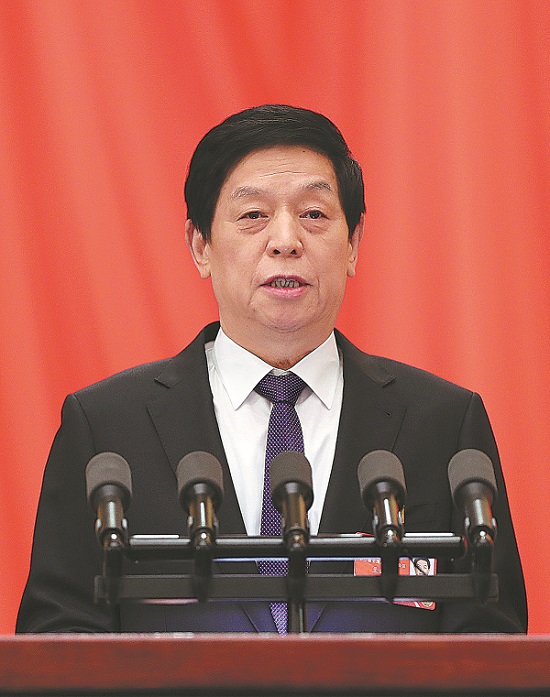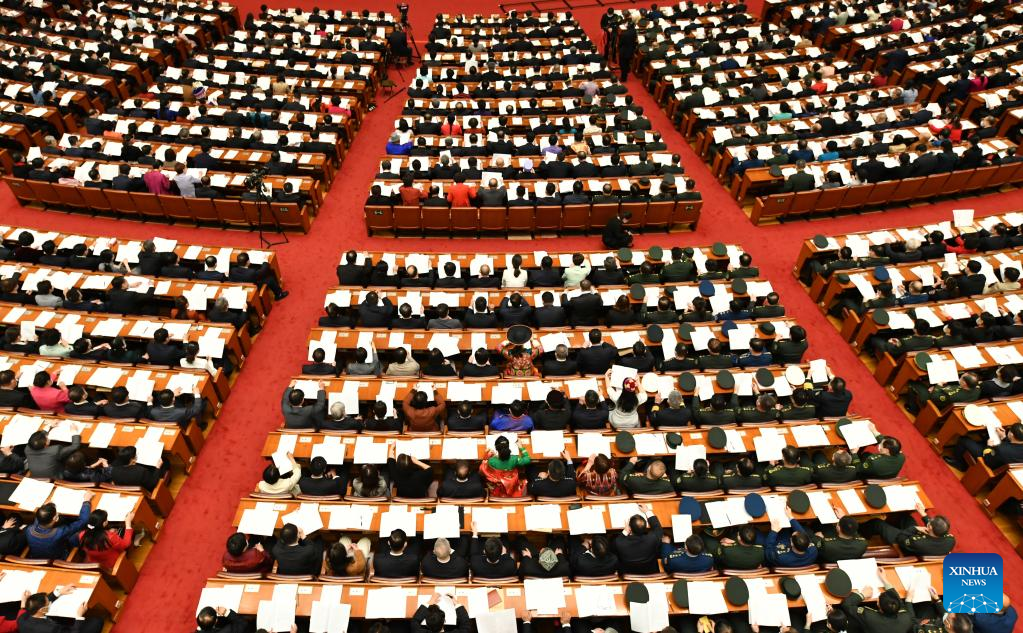Legal toolkit upgrade set to help safeguard State security

Li Zhanshu, chairman of the NPC Standing Committee. [Photo provided to chinadaily.com.cn]
Amid a complicated global situation, China will continue to upgrade its legal toolkit and develop a more complete system of laws and regulations related to foreign affairs to safeguard national security by rule of law, the top legislator said on Tuesday.
In addition, a number of laws involving national security-including those on emergency response and management, public health emergency response and food security-will be formulated, while the Law on the Prevention and Control of Infectious Diseases and the Frontier Health and Quarantine Law will be revised, according to the annual work report of the Standing Committee of the National People's Congress.
Li Zhanshu, chairman of the NPC Standing Committee, introduced the plan to national legislators while delivering the work report at a plenary meeting of the fifth session of the 13th NPC, China's top legislature, on Tuesday.

Deputies to the 13th National People's Congress (NPC) attend the second plenary meeting of the fifth session of the 13th NPC at the Great Hall of the People in Beijing, March 8, 2022. [Photo/Xinhua]
President Xi Jinping, who is also general secretary of the Communist Party of China Central Committee and chairman of the Central Military Commission, attended the meeting with other Chinese leaders at the Great Hall of the People in Beijing.
According to the work report, accelerating the establishment of a legal system supporting national security has been an important part of the legislative work of the 13th NPC Standing Committee, as laws are the institutional bedrock upon which national security is built.
The report said that last year the NPC Standing Committee formulated the Data Security Law. In addition, it drafted, reviewed and adopted the Land Border Law to regulate the demarcation, surveying, defense, management and development of land borders, and revised the Maritime Traffic Safety Law.
Moreover, the NPC Standing Committee also formulated the Law on Countering Foreign Sanctions to improve the legal system's ability to oppose interference and long-arm jurisdiction by other nations, it said.
"Under the law, China has the right to take proportional countermeasures in response to any country's actions that interfere in China's internal affairs, or harm its national interests or the interests of its citizens and organizations," Li said.
Li said the law is meant to resolutely defend China's sovereignty, security and development interests and safeguard the lawful rights and interests of its citizens and organizations.
The plan to accelerate the pace of legislative work related to foreign affairs and national security has received a warm welcome from national legislators.
Li Zongsheng, an NPC deputy from Liaoning province and a lawyer, said that he considers legislation in the sector to be an urgent and necessary task facing Chinese lawmakers, as it meets the demands of the nation, responds to public concerns and conforms with the current global situation.
He hailed the recently adopted Data Security Law, Biosecurity Law and the Law on Countering Foreign Sanctions, regarding them as a combined "sword" in safeguarding national security and opposing interference or long-arm jurisdiction from foreign countries.
"While upgrading the legal toolkit involving foreign affairs and accelerating the legislative pace in terms of protecting national security, we should also pay close attention to the quality of the legislation," he said, suggesting that the top legislature should focus on more security issues, such as those related to finance, information and transactions.
Fu Yuhang, another NPC deputy, said that she was paying close attention to this year's legislation on emergency response involving public health as well as the revision of the Law on the Prevention and Control of Infectious Diseases.
"Since COVID-19 hit the world, many deputies, including myself, have held heated discussions and made suggestions on formulating or amending pandemic-related laws, so I'm glad to see that related legislative programs are high on this year's work agenda," she added.
Fu also agreed that it is a must to develop a more complete system of laws and regulations related to foreign affairs, "as it's not only to further protect national security and people's interests, but also to help our country better face international situations and solve related problems".



